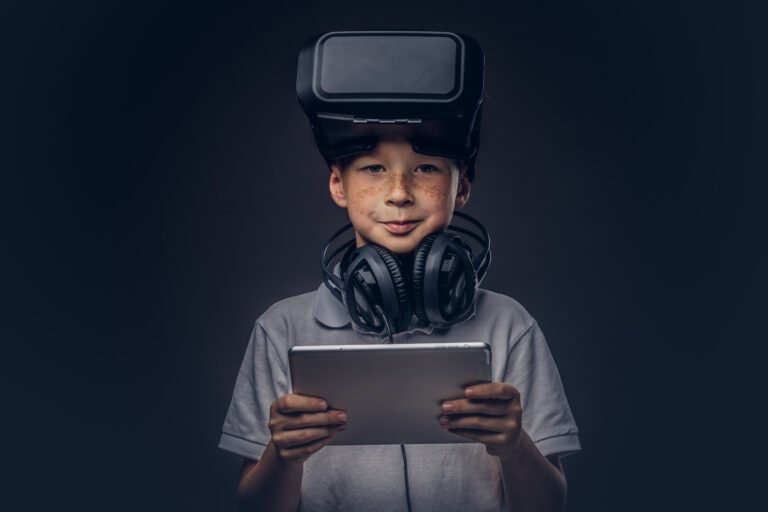How AI is Improving Mental Health?
Artificial Intelligence (AI) has revolutionized various sectors, and mental health is no exception. With the growing prevalence of mental health issues worldwide, the integration of AI in mental health care presents promising advancements. This article delves into how AI is enhancing mental health services, offering innovative solutions for diagnosis, treatment, and ongoing support.
How AI is Improving Mental Health?
Early Detection and Diagnosis
One of the most significant contributions of AI to mental health is its ability to detect and diagnose mental health conditions early. Traditional methods often rely on self-reported symptoms and clinical interviews, which can be subjective and time-consuming. AI, on the other hand, can analyze large datasets from various sources, such as social media, electronic health records, and wearable devices, to identify patterns indicative of mental health issues.
For instance, natural language processing (NLP) algorithms can analyze text from social media posts to detect signs of depression or anxiety. Studies have shown that these algorithms can identify subtle changes in language that may indicate a mental health condition long before it becomes apparent to the individual or their healthcare provider.
Personalized Treatment Plans For Mental Health
AI can also help create personalized treatment plans for individuals with mental health conditions. By analyzing data from various sources, AI systems can identify the most effective treatments for specific individuals based on their unique characteristics. This approach moves away from the traditional one-size-fits-all method, providing more targeted and effective care.
For example, AI can analyze data from previous treatments, genetic information, and lifestyle factors to recommend the most suitable medication or therapy for a patient. This personalized approach can significantly improve treatment outcomes and reduce the trial-and-error process often associated with finding the right treatment.
AI-Powered Therapy and Support
AI-powered chatbots and virtual therapists are becoming increasingly popular in providing mental health support. These tools offer immediate assistance, helping individuals manage their mental health in real-time. They can provide cognitive-behavioral therapy (CBT), mindfulness exercises, and other therapeutic interventions through conversational interfaces.
Chatbots like Woebot and Wysa are designed to engage users in conversations about their feelings and provide evidence-based therapeutic techniques. These AI tools are available 24/7, offering support when traditional therapy might not be accessible. Moreover, they can help reduce the stigma associated with seeking mental health care, as individuals can access support anonymously.
Monitoring and Predictive Analytics
Continuous monitoring of mental health is crucial for early intervention and effective management. AI technologies, including wearable devices and smartphone apps, can track various indicators of mental health, such as sleep patterns, physical activity, and social interactions. By analyzing this data, AI can provide insights into an individual’s mental state and alert them or their healthcare provider if there are signs of deterioration.
Predictive analytics is another powerful tool AI offers in mental health care. By analyzing historical data and identifying patterns, AI can predict the likelihood of future mental health episodes. This proactive approach allows for timely intervention, potentially preventing a full-blown crisis.
Enhancing Access to Mental Health Services
AI has the potential to significantly enhance access to mental health services, particularly in underserved areas. Telepsychiatry, powered by AI, enables remote consultations with mental health professionals, making it easier for individuals in rural or low-resource settings to receive care. AI-driven platforms can also provide mental health resources and support in multiple languages, catering to diverse populations.
Additionally, AI can assist in triaging patients, ensuring that those in need of urgent care receive timely attention. By automating administrative tasks, AI can free up mental health professionals to focus more on patient care, improving overall efficiency in the mental health care system.
Ethical Considerations and Challenges
While AI offers numerous benefits in mental health care, it also presents ethical considerations and challenges. Privacy and data security are paramount, as sensitive mental health information is being collected and analyzed. Ensuring that AI systems are transparent, unbiased, and used responsibly is crucial to maintaining trust in these technologies.
There is also the challenge of integrating AI into existing mental health care frameworks. Healthcare providers need to be adequately trained to use AI tools effectively and understand their limitations. Collaboration between AI developers, mental health professionals, and policymakers is essential to address these challenges and maximize the potential of AI in mental health care.
Aiotechnical.com:
Aiotechnical.com is at the forefront of leveraging AI to enhance mental health care. The platform offers a range of AI-driven tools and resources designed to support mental health professionals and individuals alike. By integrating cutting-edge AI technologies, aiotechnical.com aims to improve the accuracy of mental health diagnoses, personalize treatment plans, and provide accessible support through AI-powered chatbots and virtual therapists.
One of the standout features of aiotechnical.com is its commitment to ethical AI practices. The platform prioritizes data privacy and security, ensuring that users’ sensitive information is protected. Moreover, aiotechnical.com collaborates with mental health experts to develop AI tools that are both effective and aligned with clinical best practices.
Conclusion
AI is transforming the landscape of mental health care, offering innovative solutions for early detection, personalized treatment, continuous monitoring, and enhanced access to services. While challenges remain, the potential benefits of AI in mental health are immense. Platforms like aiotechnical.com exemplify how AI can be harnessed to improve mental health outcomes and provide much-needed support to individuals worldwide. As AI continues to evolve, its role in mental health care is set to expand, promising a future where mental health services are more effective, accessible, and personalized.







